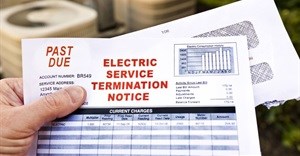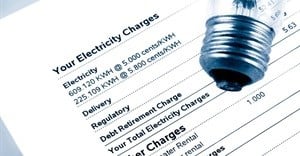City of Johannesburg's Supplementary Roll 11 published

It is the responsibility of every property owner to check the municipal property valuations ascribed to their respective properties and if the valuation is not in line with market value, to submit an objection before 3pm on 8 August 2014.
Failure to do this will result in the value ascribed to your property pertaining for the duration of 2008 General Valuation Roll (which is five years). This means that for five years (from 1 July 2008 to 30 June 2013) you will pay rates based on the higher property valuation or amended rating categorisation.
Property valuation rolls are quite complicated. Below is a brief explanation of how valuations and valuation rolls work.
Current valuation
Every property is supposed to have a municipal valuation. You should see a value, represented in rands, on the top right hand corner of your statement. This is the property valuation that the COJ has ascribed to your property. If you do not receive statements, you will have to phone the COJ on 0860 562 874 or 011 375 55 55 and quote your account number and name, to determine what your municipal valuation is.
The municipal valuation is a value ascribed to your property by the Valuations Department at the COJ. It is determined based on a number of factors and the precise value is calculated according to formulae determined by the City's Valuations Policy and the Local Government: Municipal Property Rates Act 6 of 2004. The municipal value is not necessarily equivalent to market value, but according to law, it should be. For the 2013 General Valuations and all Supplementary Rolls hereto, the date at which your property should be valued, is 1 July 2007.
The amount that the COJ charges you for rates each month, is based on your municipal valuation. If the municipal valuation increases, then the amount you pay each month for rates will also increase, and vice versa.
New rolls
The valuation roll is a database in which the COJ stores the municipal valuations of all properties recorded on that particular roll. Every property in Joburg should (hypothetically) be on a roll, but because properties are continuously coming into existence and ceasing to exist, new rolls are created (these are referred to as supplementary rolls) to include any properties that have not been previously recorded on another, prior, general roll.
Each general roll is re-published once every few years (four years in Joburg, or five years if an extension for a fifth year is given), and the property values updated at the same time. Depending on a number of factors, your property value may have stayed the same, or increased, or decreased, from the value contained on the last roll.
The COJ should give you notice if your property is appearing on a roll that is being published in the near future. This notice should tell you what your current municipal valuation is, what your revised municipal valuation is, the name of the roll that your property is now appearing on, and where you can inspect the contents of such roll. These rolls contain only municipal valuations; they do not contain reasons. If you have received notice that your property is on a roll that is soon to be published, you should determine immediately whether you are satisfied with the municipal valuation accorded to your property. If you are not, you will have to object.
Even if you have not yet received notice that your property is on a roll that is soon to be published, it is a good idea to determine which roll your property is listed on, and when it will be re-published in the future. This will give you an idea as to when you should be receiving notice of your revised property valuation, so that (if you do not receive same), you are armed with the relevant information to determine your revised value and if necessary, you have sufficient time to object to same. Not receiving notice does not absolve a property owner from the responsibility for inspecting the roll and objecting on time, or for payment of increased rates resulting from an increased valuation or rating category change.
Contact information
Most valuation rolls that are being published for the first time are posted on the COJ's website. If the roll that your property is on is not available online, you can inspect it at the COJ's offices in Braamfontein (158 Civic Boulevard, A Block, 4th Floor, Valuation Services, Braamfontein), or you can email az.gro.gruboj@seiriuqnenoitaulav for more information. You can also check your property valuation online on the City's E-services website (www.joburg.org.za - click on the E-Services link, and then the Valuation Services link, and the link to the roll will appear in a block on the right hand side of your screen).
If you are of the opinion that your municipal property value is higher than market value, you can lodge an objection with the COJ, giving reasons for same. The COJ will then assess your objection, and notify you of the outcome of same. If the COJ finds that your objection is valid, it will revalue your property in line with your objection. If it finds that your objection is not valid, it will advise you of same and your property valuation will remain unchanged.
You can download the relevant objection forms from the electronic roll as explained above. Objections to the Supplementary 11 Roll close on 8 August 2014 and can only be submitted by hand.
Incorrect property category
If your property category is incorrect on the roll, you will need to lodge an objection in the same manner as described above and follow the same procedure set out below in relation to an incorrect property category, as would apply to an incorrect property valuation. In addition, an incorrect categorisation can be dealt with in the ordinary course by logging a query and following the other dispute resolution mechanisms provided for in the City's by-laws.
If your objection is rejected, you may appeal to the Valuations Appeal Board within a certain, prescribed time period, of 30 days from date of receipt of notification of the outcome of the objection. The forms for appeals are available at the COJ from its Valuations Department, and can sometimes be downloaded from the COJ website. The Valuations Appeal Board is only convened once every few months, but at the next meeting your appeal will be considered and either accepted or rejected by the Board. You should be given written notification of the outcome of the appeal.
If the Appeals Board rejects your appeal and you are of the opinion that your appeal should have succeeded, you will need to approach an attorney for assistance to take the matter further legally. One possible option is to approach a court to review the decision of the Appeals Board.
The COJ is not obliged to consider your objection or appeal if it is lodged out of time. If there has been an obvious error in the calculating of your valuation, you can still approach the COJ's Valuations Department to rectify this error, outside of the prescribed time periods for objections. As a rule, however, the Valuations Department will not consider objections that were not the product of obvious errors, outside of the prescribed time periods.
Apply for condonation
Although you can apply to the MEC for condonation for the late filing, this is a lengthy, frustrating and potentially expensive process, and it is much better to file in time. Outside of this procedure it is also possible to apply for the COJ to re-consider the valuation of your property in terms of a different procedure called a section 78 enquiry, but that too can be a lengthy and potentially frustrating procedure. Ultimately, you can approach the High Court for relief if the COJ persists in an unreasonable valuation.
The applicable legislation prescribes that the lodging of an objection/appeal does not relieve the consumer from making payment of all amounts billed to it for rates by the COJ. This means that you should make payment of all amounts billed to you for rates during this period, even if those amounts are more than you would expect to pay, when your objection/appeal succeeds.
Only if your objection/appeal has been lodged and you have not received notification of the outcome of the objection/appeal within the prescribed time periods, can you log a query/dispute with the COJ in respect of same.
Once you have logged a query/dispute, you can then pay the COJ the average amount of rates billed (calculated over a three month period, immediately before you lodged your objection). If you do not pay any amounts for rates at all, or pay less than the three months average, your query/dispute will not remain valid and will fall away (note that only the query/dispute will fall away, not the unconsidered objection/appeal). This would allow the COJ to take legal action against you to recover any outstanding amounts.
















